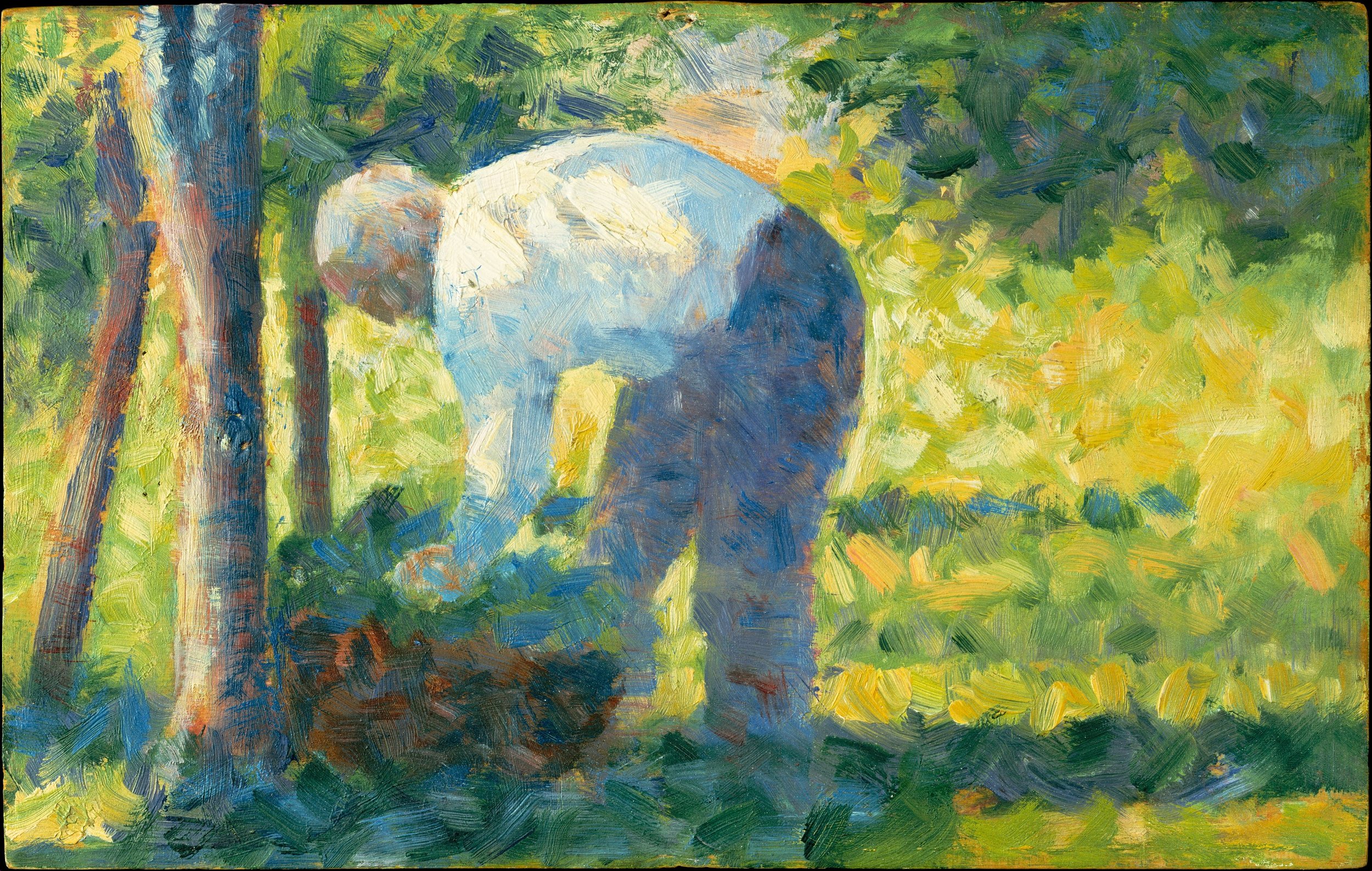A reflection on The Gardener
The Gardener by Georges Seurat
Supposing him to be the gardener, she said to him, “Sir, if you have carried him away, tell me where you have laid him, and I will take him away.” Jesus said to her, “Mary!” She turned and said to him in Hebrew, “Rabbouni!” (which means Teacher). Jesus said to her, “Do not hold on to me, because I have not yet ascended to the Father. But go to my brothers and say to them, ‘I am ascending to my Father and your Father, to my God and your God.’” Mary Magdalene went and announced to the disciples, “I have seen the Lord”; and she told them that he had said these things to her. (John 20:15-18)
The Paschal Mystery gives us so much to ponder: such richness of word and image in scripture and liturgy, not to mention the music and visual arts connected with this season. I won’t attempt to add to all that wealth, although perhaps the following reflection will have something of a Paschal flavour for you. It’s a variation on what might be a familiar theme: something that came to me when I was thinking about how we ourselves are the greatest resource we bring to our practice of spiritual direction, although the work we do is not ours. We quite rightly need to learn skills and the essentials of good practice in our formation; but we also need to learn to be ourselves: supple in the hands of God. If you’re having an Easter break, maybe you’ll be able to find a quiet time and space when you can sit back and imagine…
…Imagine yourself walking along a country lane and coming to a wall with a door in it. On the door is a bright, shiny plate with your name on it, and underneath that the words “Spiritual Director” (or whatever your ministry is: whether it’s something with an official name, or a more hidden ministry peculiar to you with a name only you know). You push at the door and it opens easily: you find yourself in a garden. Take time to look around; notice the season and time of day… This garden is yours, and in some way it represents the gifts you bring to your ministry: your own style and charism. So what is it like? Are there manicured lawns and shaped flowerbeds, or long grass and wildflowers? Are there straight paths or windy ones, or no paths at all? Open spaces or hidden corners?
What can you hear? Wind, birds, water; or silence? Feel shapes and textures; smell any scents carried on the air. Is there something you can taste? See if there are any other creatures in your garden: animals, birds, insects… If there is water, is it a pond, fountain or steam? After a while find somewhere to sit. Consider how this garden represents your ministry, and savour all that it has to tell you. When you’re ready, get up and walk again, perhaps exploring a different part of the garden. This time you notice that the garden is still a work in progress: there might be weeds or brambles choking the more tender plants; some plants might need pruning, or supporting, or to be given a drink; flowers that need dead-heading or fruit that needs picking. There might be empty beds where the ground has been turned over but nothing has been planted yet…
Someone calls your name: it’s the Gardener, whom you notice for the first time, straightening up from his patient and loving work and turning towards you. “So how do you like your garden?” he asks. What do you answer?
Then the Gardener asks, “and what would you like me to do here?” Tell him the work you’d like to see, or perhaps you use his other name of Teacher and ask him what needs to be done. Does he invite you to help him? What do you do together? What gardening tips do you learn from him? Perhaps the work involves clearing stones; maybe there is one big, heavy one which only the Gardener can move away, to make room for light and life.
After a while, it is time for you to leave. The Gardener tells you that the garden is yours to return to any time you wish, and that he will be here to greet you. Before you go, he has one more thing to say to you: you must “go and tell” — what? What have you learnt in the garden that he is inviting you to share. And will you “tell” in words, or in the way you live and serve others?
…What is spring?
Growth in everything
(Gerard Manley Hopkins)
Dr Antonia Lynn
Antonia Lynn oversees the formation, support and membership of spiritual directors affiliated to the Centre and is our Community Warden.


